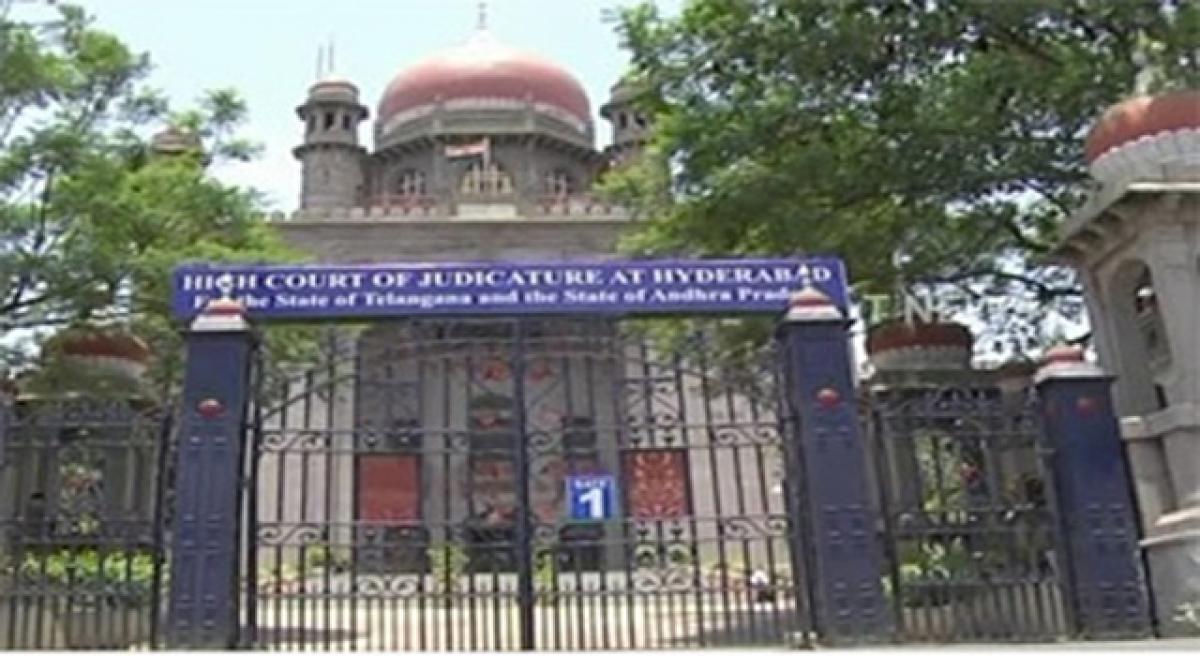Live
- DEO suspends teacher accused of sexual assault
- PM ‘cursing’ Congress out of despair: Maharashtra Cong Chief
- Applications are invited for Junior Colleges Scheme District Scheduled Castes Development Officer Ramlal
- A nomination was filed on the second day for the Nagar Kurnool parliamentary seat
- SP Gaikwad inspected the Telangana Amarnath Saleswaram Jatara yatra arrangements
- Rahul Gandhi's decision to contest from Wayanad shows 'lack of confidence': BJP President Nadda
- IPL 2024: Delhi bowlers will go after all of SRH’s top-order batters, says head coach Ricky Ponting
- At Amroha rally, PM Modi sends out ‘meaningful’ message for Muslims and Hindus
- Tripura records highest 79.83 pc voter turnout in Northeast
- The government has to clear the confusion
Just In

The Telangana government suffered yet another significant legal setback with High Court quashing the controversial GO 123. As the GO contradicts the Land Acquisition Act enacted by Parliament, it is legally untenable.
The Telangana government suffered yet another significant legal setback with High Court quashing the controversial GO 123. As the GO contradicts the Land Acquisition Act enacted by Parliament, it is legally untenable.
The policy of land procurement through this GO is a clear attempt to subvert the provisions of an acclaimed Central act. The GO 123 envisages voluntary land alienation as farmer willingly comes forward for government to procure their lands.
But, this willingness of the land owner is a misnomer given the asymmetry of relationship between the State and the peasant. Indian judiciary has always come to the rescue of the feeble in such a situation. The latest court order is a continuation of this welfare jurisprudence.
The State government argues that it is empowered to issue such a GO as per the section 107 of the Central act. But, this section permits states to amend the law only to enhance entitlements, and prohibits diluting any entitlements or safeguards.
The section 107 of Right to Fair Compensation and Transparency in Land Acquisition, Rehabilitation and Resettlement Act, 2013 reads as follows: Power of State Legislatures to enact any law more beneficial to affected families– Nothing in this Act shall prevent any State from enacting any law to enhance or add to the entitlements enumerated under this Act which confers higher compensation than payable under this Act or make provisions for rehabilitation and resettlement which is more beneficial than provided under this Act.
But the GO 123 in the name of procurement through the willingness of the land owners dilutes the entitlements provided in the 2013 act. Therefore the GO is ultra vires to the 2013 act. This is the context in which the court reportedly observed that the State cannot be a property dealer.
The acquisition of property falls under the Concurrent List, both the Centre and states can enact laws. In fact, Article 254 (2) says , “Where a law made by the Legislature of a State with respect to one of the matters enumerated in the Concurrent List contains any provision repugnant to the provisions of an earlier law made by Parliament or an existing law with respect to that matter,
then, the law so made by the Legislature of such State shall, if it has been reserved for the consideration of the President and has received his assent, prevail in that State: Provided that nothing in this clause shall prevent Parliament from enacting at any time any law with respect to the same matter including a law adding to, amending, varying or repealing the law so made by the Legislature of the State. “
But a State government cannot issue a GO in contravention to the central act itself though the subject falls under the Concurrent List of the Constitution. Even the State legislature cannot pass a law that is in contrary to the section 107 of the central act.
As the State government has already expressed its willingness to acquire land as per the 2013 act if the displaced wishes so, it should not go for further appeal against the High Court verdict. The government should take the judicial pronouncement as an opportunity to correct its unpopular public policy.

© 2024 Hyderabad Media House Limited/The Hans India. All rights reserved. Powered by hocalwire.com







